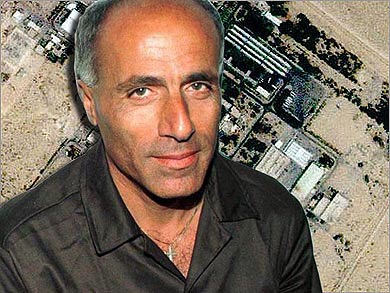
The story of Mordechai Vanunu (Mordechai Ouanounou) is worth being made into a successful spy movie. The man, also known as John Crossman, carries behind him a story that some consider “black” while others find it honorable, giving rise to much controversy about his personality.
Mordechai Vanunu was born on October 13, 1954 in Marrakech, into a very religious Moroccan Jewish family. This family immigrated to Israel in the 1960s, settling in Beersheba when he was only six years old.
As a young man, Mordechai Vanunu joined Tsahal. After a remarkable scientific career, he joined the Dimona nuclear power plant in 1977, at a time when Israel was working secretly on its nuclear project in the Negev desert.
He was promoted in terms of his career and was made aware of many secrets about Israel’s nuclear weapons programs as he gained years of knowledge about uranium and plutonium, which are essential for the construction of a nuclear reactor. This is what he revealed to the world in 1986 after revealing sensitive information and photos of Dimona’s interior to the British newspaper The Sunday Times, following his dismissal from his job due to doubts about his political leanings.
During his time in Dimona, from 1977 to 1985, Mordechai Vanunu met many left-wing friends while studying philosophy in his free time and joined the Israeli Communist Party. He was seen in numerous demonstrations in support of the Palestinians, which alerted the Israeli security services, before he was dismissed. He left Israel for Australia where he settled for a while. Later, it was in Great Britain that he stayed after revealing details of the Israeli nuclear program. A beautiful young woman, who happens to be a Mossad agent, set a trap for him to be kidnapped with the aim of bringing him to trial in Israel.
Mordechai Vanunu has been accused of treason, spying and divulging state secrets. He was sentenced in 1988 to 18 years in prison. He was released in 2004, but with many strict conditions, such as not leaving Israel; not making contact with a foreigner or changing his place of residence except with the permission of the authorities; not approaching foreign embassies, border crossings or airports, among other restrictions, some of which he had violated, resulting in short stays in prison.

Be the first to comment